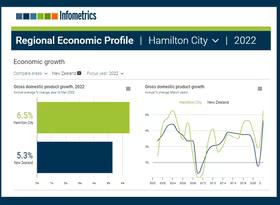Time for rethinking the census
Last Tuesday would have been census day. A day when our statistical agency collects all sorts of personal information about our working lives, our living circumstances and our family structures. But the devastating second earthquake in Christchurch has scuppered the five yearly poll. The nations resources will be severely stretched over the next few years and this may be an opportunity to trial less costly ways to collect information on our population than a full count of every individual in New Zealand.
The decision to cancel the 2011 census was a reasonable one. Conducting it in the current environment with so many people displaced and Cantabrians focused on getting their shattered lives back to normal would be fraught. Moreover, Statistics New Zealand's infrastructure has been damaged badly enough to make it unfeasible.
However, the census is a crucial tool for much public decision-making. Census statistics are used to allocate public money to different part of the country for local services such as education, housing, transport and health. It is used to determine electoral boundaries and analysts use it answer a myriad of research questions. But is it necessary to have it every five years?
The strongest argument against a census every five years is the huge cost. The budget for the 2011 census was nearly $90m (spread over 5 years) which is approximately equal to Statistics New Zealand's annual budget (excluding the census). Without a five-year census there would be more resources available to collect all the other types of data that we desperately need.
As an analyst in South Africa in the late 1990s I worked with a 10% sample of individual records from the 1996 census. The dataset was adequate to meet all my analytical needs, including analysis at a relatively small local area level. It raised a question in my mind if I am able to use a 10% sample of households why bother collecting data from every single household? Why not just collect information from every tenth or every hundredth households?
We can't get away forever without counting all households. If we want to conduct robust surveys based on a sample of the population, we need to know what the full population is. But it is possible to get away without having a full census every five years and stretch it out to ten years. South Africa recently joined the long list of countries that have a census only once every ten years. Between censuses South Africa have opted for a large sample household survey which essentially generates a data set similar to the 10% census sample I worked with all those years ago.
New Zealand is now part of a very small group of countries that has a census every five years including Canada, Australia and Ireland, all countries better off than ourselves.
The trend among European countries is to do away with censuses all together and rely heavily on administrative data sources. Statistics Netherlands found the willingness to participate in population censuses to be falling sharply and their last census based on a complete enumeration was held in 1971. They now prepare a Virtual Census which uses a combination of administrative databases such as the national population register, a jobs register and social security register together with sample surveys for information that is not available from the registers, such as education level and occupation. According to the Dutch the Virtual Census is cheaper, compared with earlier censuses, and more socially acceptable.
The 2011 UK census which is due to be held on 27 March is likely to be the last. Previous censuses have been criticised for being an expensive way of collecting information which is not always accurate and many councils have complained they have lost funding based on inaccurate counts of their population. The UK is likely to join a growing list of countries that do not conduct censuses including Netherlands, Germany, Switzerland, Sweden and Norway.
An administrative based population count may be our best option and Statistics New Zealand will have undoubtedly considered it. But we do not currently have a population register and there will be public resistance to the introduction of one so we are not in a position to change to a register-based model in the foreseeable future.
Our statistical agency's current model of population data collection has been developed and refined over many successive census cycles. Our censuses are accurate with among the lowest undercounts in the world. Changing a well-functioning system would be a bold step but our current circumstances in the wake of the earthquake may provide the incentive to consider a system for the foreseeable future which is more cost effective. A ten yearly census with a large sample survey in-between might well be all we need.




